
India has the world’s fourth largest economy but more than 22% of the country lives in poverty. About 31% of the world’s multidimensionally poor children live in India, according to a report by the Oxford Poverty and Human Development Initiative. A multidimensionally poor child is one who lacks at least one-third of 10 indicators, grouped into three dimensions of poverty: health, education and standard of living.
India’s youth also face a lack of educational opportunities due to issues of caste, class and gender. Almost 44% of the workforce is illiterate and less than 10% of the working-age population has completed a secondary education. In addition, many secondary school graduates do not have the knowledge and skills to compete in today’s changing job market.
Child labor continues to be a serious issue in the country with more than 10 million children in the workforce, as reported by aid agencies. An estimated 11 million children live on the streets facing the daily horrors of rampant exploitation, forced labor, widespread substance abuse and physical violence. For many, it is difficult to imagine a better life.
Salesian missionaries living and working in India place special emphasis on rescuing and rehabilitating children engaged in child labor. There are Salesian-run programs throughout the country that have helped hundreds of thousands of vulnerable youth through the years, and this work continues today.
Many children living on the streets are runaways who have left home in search of work or to escape violence or other family difficulties. According to aid agencies, more than 40,000 children are reported missing every year in India. Of these, close to 11,000 remain untraced. As many cases go unreported, it is suspected that the actual number of missing children is much higher. Many runaways come to major cities like Delhi, Mumbai, Kolkata and Bengaluru in search of work and a better life but the majority of them end up living on the streets and on the country’s railway platforms where they beg, steal or perform menial jobs to survive. All too often, they fall victim to child traffickers.
Salesian missionaries run programs throughout the country that have helped hundreds of thousands of vulnerable youth through the years and continue this tireless work today.
In 2014, the Salesian-run Bangalore Oniyavara Seva Coota (BOSCO), located in Bengaluru (formerly Bangalore) received the National Award for Child Welfare from the government of India, for its decades-long outstanding service in the field of child welfare for marginalized children. Located in the third-most populous city in India, it helps child laborers, victims of child abuse and youth who are orphaned, abandoned or live on the streets. Nine BOSCO rehabilitation centers and six outreach hubs are spread throughout the city to assist these children in need.
Salesians also run the Don Bosco Childline in Bengaluru, which is a hotline for people to call if they see children abandoned or in danger. In any given month, missionaries come to the rescue of more than 100 children—connecting them to shelters, medical facilities, counselors and more.
Salesian missionaries also work as part of the CREAM project (Child Rights Education and Action Movement), which is sponsored by the Office of Development of the Province of Bangalore BREADS (Bangalore Rural Education and Development Society). Through this program, close to 100,000 children have been educated about their rights through more than 900 special clubs and courses offered in schools across India.
The purpose of BREADS is to reach the most disadvantaged children in 10 districts in the Indian state of Karnataka, especially in high-risk areas. The goal is to work with youth to build a culture of protection of children’s rights. The project also puts a strong emphasis on improving the potential of minors as well as ensuring the sustainability of activities and results. The project has launched into its second phase and is working to reach 150,000 youth through child rights education.
Salesians are an important part of the safety net for children facing adversity in India and often work with local and state authorities. In 2015, for example, police rescued more than 200 child workers in Hyderabad (the capital of the southern Indian state of Telangana). The children were forced to work long hours and forbidden from leaving their place of work. Further, their work exposed them to chemicals and hazardous working conditions which caused them to have skin burns and other injuries. Knowing they would be properly cared for, authorities placed the children with Salesian missionaries at Don Bosco Navajeevan, a home for street and working children.
Salesian programs for the rescued youth focus on education and life skills training to help them break the cycle of poverty in order to lead productive lives free from abuse and forced labor. In addition, supplementary classes cater to those who have missed school and have fallen behind academically.
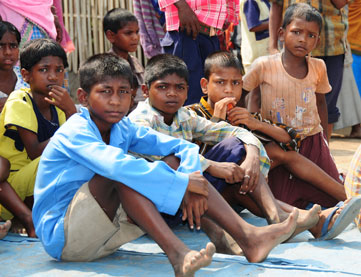
Salesian missionaries in Garigaon, a small settlement located in a strongly tribal region in the state of Assam, operate an elementary school with a kindergarten program that accommodates up to 700 children. Most of the people living in Garigaon belong to different ethnic groups and came to the settlement as migrants, either because they had abandoned their homes of origin in search of a job or because the lands they cultivated were expropriated. The living conditions of these families have not improved after migration, and they are still struggling with the long-term effects of displacement.
Salesian missionaries of Guwahati have been active in the area for many years. When migration from tribal areas began, the village streets were filled with very young children who spent their days outdoors, unsupervised and with no care. In 1988, Salesian missionaries constructed a kindergarten, which over the years developed into an elementary school on the same complex. The school aims to provide education and structure for vulnerable children of tribal origin.
Close to 800 youth at 30 tuition (study) centers have been supported thanks to donor funding from Salesian Missions. The centers provide school support for poor and disadvantaged students to improve their reading, writing, and speaking skills, and engage in recreational activities.
With the funding from Salesian Missions, Salesians bought school supplies such as pencils, erasers, rulers and pens for the students to complete their examinations. Sports and recreational materials were distributed to 30 tuition centers for youth to improve both their mental and physical health. Teacher salaries were also supported at the centers.
Salesian missionaries provide technical and vocational training programs across India to help youth gain the skills needed to find and retain employment. At the Don Bosco Tech of Dimapur, the largest city in Nagaland, technical skills training and workforce development services are provided for poor youth. Don Bosco Tech’s skills training programs serve as a valuable resource for youth who have little access to education. In order to help youth find work most efficiently, the Salesian skills training programs meet the needs of local job markets.
Courses combine classroom education with mentoring, soft skills training and hands-on internships. Salesian teachers also work with students to help them craft résumés and prepare for interviews, all with the goal of ensuring graduates find employment. Through this extra support, students find that they have a smoother transition from the classroom into the workforce.
Don Bosco Technical School Maligaon, located in Assam, will be making technical education more accessible through the new “Promoting Peace through Technical Training” project. This project was made possible thanks to a grant from the United States Agency for International Development’s American Schools and Hospitals Abroad (USAID/ASHA) program secured by Salesian Missions.
Through this project, which runs to the end of September 2026, Don Bosco Technical School will be transformed into the new Don Bosco Institute of Technology with the construction of a modern science and technology building. With the use of cutting-edge technology, Don Bosco Institute of Technology will advance technical training for vulnerable youth across Northeast India and beyond.
The new center will offer short-term technical programs that are relevant to the area, such as artificial intelligence, machine learning, cybersecurity and big data, as well as house a master classroom that will project sessions to remote skill centers. The initial goal is to reach 2,000 Indian youth and teachers from economically subordinate castes and villages to actively engage them in science, technology, and innovation by providing equal access to cutting-edge education by 2026.
The Don Bosco College of Agriculture in Chennai was inaugurated in October 2014 as the first Catholic agricultural college in India. Agricultural training on the 250-acre campus began more than six decades ago when a group of Salesians founded a small agricultural school to train rural youth in the basics of agriculture. The College’s main focus is increasing the skill level of poor rural youth to make them employable. Although India ranks second in the world for farm output and its agriculture and allied fields account for 50% of the total workforce in the country, there remains a large percentage of agricultural workers who are unskilled in modern techniques which results in low productivity. Students at the College learn new skills in agriculture and animal husbandry, horticulture and fruit growing, and breeding cattle and sheep.
In addition, the Salesian College Sonada in Darjeeling, affiliated with the North Bengal University in Siliguri, started four new bachelor honor-level courses. The courses are in mass communications, philosophy, geography and finance. The Salesian College provides 1,400 students opportunities for advanced studies and to complete their bachelor’s degrees. The College offers eight general degree courses including English, education, history, political science, sociology, management studies, business administration and computer science.
In Bengaluru, the capital of the Indian state of Karnataka and third-most populous city in India with over 8.4 million residents, a Salesian non-governmental organization called Bangalore Oniyavara Seva Coota (BOSCO) has been working with at-risk youth since 1980. The organization serves youth who are living on the streets, child laborers, victims of child abuse and those who are orphaned or abandoned. There are seven BOSCO rehabilitation centers and six outreach hubs spread throughout the city.
Once youth are identified by BOSCO and convinced to come in off the street, they are provided with basic needs such as housing, food and clothing. In addition, they receive counseling and, if appropriate, are reunited back with their families. Education is also a primary component of BOSCO and is provided to those in the rehabilitation program. Those returned to their families have access to Salesian schools throughout India. Youth who continue their education are more likely to find and retain stable employment later in life and break the cycle of poverty.
Education is the key to equality. This is why Salesian missionaries in India are also focused on achieving gender equality through education and workforce development programs targeted specifically for young women and girls. These programs strive to empower young women and girls by providing opportunities for education and training that lead to livable wage employment.
Salesian programs across India ensure that young girls and women have access to education and the skills training needed to find and retain employment. Don Bosco Seva Kendra operates MACS (Mutual Aided Cooperative Societies) Self-Help Groups for women. The goal is to help women become financially self-sufficient and be able to better care for their families. Leelavathi Dandemoori, from the Gujjanagundla village of the Guntur District and whose husband is a laborer, was able to access both training and start-up loans so she could launch her own business.
Bosco Education & Skill Training Center for Women, part of the Konkan Development Society in the Gadag district, Karnataka, offered skills training to vulnerable women thanks to donor funding from Salesian Missions. There were 290 women who took part in the training.
The women, aged 18-35, took tailoring and computer classes to help improve their life circumstances. The initiative is part of the self-help groups that Salesians developed to help women become financially self-sufficient and be able to better care for their families.
One of the beneficiaries is a woman with four children, including one child with physical disabilities. Her husband’s earnings are low and she has to be home to care for the children. Through the training, she has been able to work from home stitching clothing and now earns enough money to contribute financially to the household.
On Monday Dec. 12, 2016, Tropical Cyclone Vardah, with winds reaching close to 87 miles per hour, made landfall near Chennai, Tamil Nadu, and also affected the neighboring state of Andhra Pradesh. Cyclone Vardah, equal to a Category 1 hurricane on the Saffir-Simpson scale, forced thousands to evacuate and killed 23, according to the National Disaster Management Authority. The cyclone was the most severe storm to hit the area since the 2015 South Indian floods that resulted from heavy rainfall generated by the annual northeast monsoon season, which killed 500 people and left 1.8 million displaced.
Cyclone Vardah flattened homes to the ground, disabled communication lines and brought the local transport system to a halt. Salesian missionaries living and working in Chennai reported that more than 12,000 trees were knocked down as a result of the cyclone in Chennai and its suburbs. Not only were trees uprooted but the winds brought down overhead cable lines and electricity poles. The cyclone damaged more than 7,000 huts and the power infrastructure within Tamil Nadu. The Tamil Nadu government indicated that 7,350 people were shifted to 54 relief camps set up in Chennai, Kanchipuram, Tiruvallur and Villupuram districts.
Salesian missionaries responded to this storm and other severe seasonal flooding each year with relief efforts by providing food, supplies and hygiene kits to local residents while dealing with damage to their own programs.
Through the generous support of a Salesian Missions donor, Bosconet, located in New Delhi, was able to provide food rations to those impacted by the coronavirus lockdowns in communities in Shillong and Assam. As a result of the lockdowns, many people lost their jobs, including migrant, contract and domestic workers, and daily wage laborers. Migrant workers were not able to travel back home to be with their families and were stuck with no work, no proper place to live and no food to eat. Bosconet stepped in to help and began distributing dry ration kits on March 25. Through the support of the Salesian Missions donor, Bosconet was able to reach 780 families from May 16-30. Temporary laborers on tea gardens and daily wage laborers were provided dry ration kits to ensure they had food to eat.
Salesian missionaries with Don Bosco Konkan Development Society in Goa were able to provide more than 50,000 people nutritional support thanks to donors including funding from Salesian Missions. While Goa faced food scarcity, Salesians were able to secure rice and other rations from sources in Maharashtra as well as local suppliers.
In addition, through another Salesian Missions donation, Konkan Development Society was able to provide dry ration kits to 700 families across the three states of Goa, Karnataka and Maharashtra.
Salesian missionaries with Bosco Vikas Gramin Kendra were able to support children in migrant communities in the Central Maharashtra region. The project encouraged children from the migrant communities to attend study centers for various sports activities. This brought youth in the door and allowed them to access the other services being offered, including classes. In six project hamlets, study classes were held on a regular basis. A total of 193 boys and girls were enrolled and studied math and language. At the conclusion of each month, tests were administered to assess progress. The monthly evaluations were then shared with the students. Special additional care and attention were provided to those who needed help.
Nutrition was also provided for 200 youth, who were able to have at least one healthy meal a week thanks to the project funding. Salesians also held programs to inform parents about the importance of healthy nutrition. Parents were able to attend sessions that informed them of other services available to them. Salesians covered 12 programs that parents could access including health insurance, financial aid and nutritional support. More than 2,300 people attended these sessions.
Salesian programs in India were able to provide additional services to at-risk and marginalized youth thanks to donor funding through Salesian Missions. The funding enabled the Ongole Don Bosco Center in Andhra Pradesh to start a summer camp and Don Bosco Nagar in Hyderabad to provide extra services in its tutoring centers.
The summer camp started by the Ongole Don Bosco Center serves 150 marginalized and at-risk youth. It offers introductory education classes for street children who have never attended school, English language classes—including reading and writing—and basic computer skills. For youth in the program, the classes have increased their confidence in their ability to learn and will serve them well academically once they begin formal education.
At Don Bosco Nagar, donor funding helped support evening tutoring centers that assist poor youth with their homework and provide counseling, recreation facilities and evening meals. The hope is that these centers will reduce the school drop-out rate and help to groom contributing members of society. About 500 children have received assistance through the donor funding.
In addition, Salesian Missions has received funding through a donor’s estate to help with the cost to purchase, transport and repair a second-hand grand piano for the students of Don Bosco Academy of Music, which is a part of the Don Bosco Cultural Center, located in the city of Vennala in the state of Kerala. The Don Bosco Music Academy provides education to more than 50 resident students and close to 110 students from local neighborhoods. Attending students are between 10 to 45 years old and learn various instruments. Of the total students, nearly 40 are learning keyboard, piano, acoustic piano and grand piano.
Water projects funded by a donor through Salesian Missions are providing two villages in India access to clean water through the Clean Water Initiative. The Marathwada region in the state of Maharashtra often suffers from drought-like conditions leaving villagers without water for cooking, drinking and proper sanitation. The newly funded projects will help to desilt wells and canals, repair or replace new water piping, and install new water tanks.
In the village of Kolhewadi in the Ahmednagar district, funding helped pay for digging a new bore well, 20 feet of casing pipe, and the installation of a submersible pump of one and a half HP for the bore well, which includes HDPE pipes, panel boards and a service cable up to the connection point. The project also entailed the installation of a new water tank that holds 5,000 liters of water, and new fencing and plumbing for the water tanks.
In Pimpalgaon Ghat in the Beed district, the project entailed 1,500 meters of new pipe lines as well as fixing current piping, and the installation of a submersible pump of one and a half HP for the bore well, which includes HDPE pipes, panel boards and a service cable up to the connection point. This project also funded a new drinking water tank for the residents of the village.
In addition, Don Bosco Center Rangajan, located in Assam, will be able to construct several restroom facilities providing 50 new toilets and a septic tank, thanks to funding from Salesian Missions donors. Salesian Missions “Clean Water Initiative” will ensure that those who use the center, mostly poor, indigenous residents from a number of remote villages, will have adequate facilities to use.
At the Don Bosco Center Rangajan Salesian missionaries provide both a high school and a vocational technical training facility. Constructing decent restroom facilities will help improve health and hygiene, and curb the outbreak of diseases.
Another water project is ensuring boys attending the Don Bosco Rehabilitation Center for Street Children at Ramanthapur in Hyderabad, the capital city of southern India’s Telangana state, have improved bathroom facilities thanks to funding from Salesian Missions. The funding, provided through the Salesian Missions “Clean Water Initiative,” was used for a major renovation of the bathroom facilities at the center. Repairs were made, 10 urinals reconstructed and pipes cleaned.
Don Bosco Navajeevan has four centers in the twin cities of Hyderabad and Secunderabad where more than 300 children, both boys and girls, are living and gaining an education. The Don Bosco Rehabilitation Center has 150 boys at the facility which provides accommodation, food, medical care and education free of cost. The boys, ages 6 to 16, are all at-risk youth who were street children, child laborers and orphans.
Girls living in a hostel at the Don Bosco Junior College in the town of Diphu, the largest administrative headquarters of the Karbi Anglong district in the state of Assam, also have access to clean water thanks to a new water project funded by the Salesian Missions “Clean Water Initiative.” In Diphu, piped water is available to only a very few residences.
The Don Bosco Junior College campus, which is 10 kilometers from the town, had been struggling to provide adequate water for washing, drinking, cooking and laundry. Reliance on hired water tankers was proving to be expensive. With funding, Salesian missionaries have been able to drill a successful borewell and offer piped water throughout the building. Piped drinking water is now available from a water purifier as well.
St. John Paul II School in the community of Maram Khullen, located in Manipur, has a new toilet complex thanks to donor funding from Salesian Missions. The project is part of the Salesian Missions “Clean Water Initiative.” The school provides education to 170 students, ages 4-13, with the support of 10 staff members. The funding was utilized for construction of the entire toilet complex from the foundation to the ceiling and walls. Funding was also used to tile the floor, paint the entire building, and install the toilets and partition them. Separate areas of the building were provided for both boys and girls.
The Salesian-run organization, Don Bosco Navajeevan, located in Hyderabad, the capital of southern India’s Telangana state, received 20,000 rice-meals from a recent meal packing event held by Rise Against Hunger in collaboration with staff from Synopsys India, a leader in global electronics. The donated meals are helping to enhance the educational environment for poor youth and are offered to students during the school day. For some students, the meals they receive at Salesian-run centers are the only meals they have each day. The food aid also serves as an incentive for families to send their children to school and as a result Salesian schools have experienced increased enrollment and students are thriving. Many have gained weight, suffer fewer illnesses and are more focused on their studies. Teachers are noting better student performance in classes as well as less conflict among students.
Don Bosco Navajeevan is a shelter and youth center that places special emphasis on rescuing and rehabilitating children engaged in child labor and offers shelter to child laborers and street children. Once a child arrives at the center, they receive shelter, food and clothing and are then eligible to participate in Salesian programs that focus on education and life skills training. The goal is to help the children break the cycle of poverty and go on to lead productive lives free from abuse and forced labor. Supplementary classes at Don Bosco Navajeevan cater to those who have missed school and have fallen behind academically. This necessary extra assistance enables students to enter back into mainstream schools. The donated rice-meals are used to feed children living at and enrolled in programs at the center.
Schneider Electric Foundation is funding five international projects run by Salesian technical and professional schools aimed at sustainable human and social development. Schneider Electric Foundation is the charitable arm of Schneider Electric, a European multinational corporation that specializes in electricity distribution, automation management and the production of installation components for energy management. In Pingull Kudal, funding from this project will update the equipment in the laboratory of the local Professional Training Center to offer students the opportunity to work in more modern facilities.
Thanks to Salesian Missions donors, youth at the Don Bosco Academy of Music and Fine Arts have a new second-hand piano to further their music education. The academy, which is part of the Don Bosco Cultural Center, was founded in 2012 and is located in the Indian state of Kerala. Disadvantaged students can access free musical training through the academy. Currently, there are 100 students being trained in piano, keyboard, violin, guitar, drums, vocals and more.
In addition to regular educational lessons, Salesian missionaries teach music and the arts so youth can be more well-rounded students and learn to nurture their talents. With the addition of the piano students are better able to learn how to play and have time to practice their lessons.
Donor funding has also helped the Don Bosco Vocational Technical Center (Don Bosco Tech), located in Rangajan in the state of Assam, have five new sewing machines, five new computers and the funding to provide training to 30 additional students. Don Bosco Tech provides educational opportunities for the underserved Adivasi tribal community. The school offers education and job placement courses in sewing machine operation and photovoltaic systems installation, operation and maintenance. Additional equipment was needed to allow more students the opportunity to learn vital job skills to help find livable-wage employment.
In a recent project, Salesian Missions donors have provided funding for the purchase of sheet metal and mosquito netting to construct 120 beds for poor youth at St. Anthony’s Technical Institute located in Kadapa, a city in the Rayalseema region of the south-central part of Andhra Pradesh. More funding is needed to help ensure the institute has the funding to purchase materials for all 120 beds.
This project is a work-sharing venture. Poor students at this Salesian trade school are in dire need of beds and protective mosquito nets. The goal is to provide the raw sheet metal, which the students in the welding shop will use to manufacture bed frames to replace the mats they currently use to sleep on the floor. Students will be able to practice the skills they learn in the classroom while also helping their classmates.
In response to the overwhelming need for HIV/AIDS care in the country, Salesians in southern India opened Don Bosco Care Home in the village of Nilavarapatti located in the district of Salem in Tamil Nadu in August 2011. The home serves as a pilot program that provides treatment and a safe space for young boys that have HIV/AIDS who have been abandoned by their families. At Don Bosco Care Home approximately 60 young boys receive counseling, recreation opportunities, medical observation and critical antiretroviral therapy treatments (ART). Some of the boys live at the home and have access to services and educational programs there while others, including those who attend the local polytechnic college, have access to the program’s ART treatments and then return to their own homes. Don Bosco Care Home was started as an extension of Don Bosco Anbu Illam, which provides shelter, counseling, education and support services to poor youth in the region.
Salesian Missions donors are improving the medical care of children in India. Salesian missionaries care for the sick in nearly 100 clinics and hospitals, located mostly in rural areas, around the globe. The new mobile medical van and medical assistance booths funded help Salesian missionaries address a number of serious and sometimes chronic health concerns faced by youth. For some, this is the only medical care they receive.
Donors have provided funding so that current medical assistance booths operated by Don Bosco Navajeevan Rehabilitation Centers in Hyderabad are able to expand to accommodate care for at least 800 more children each year. The medical booths have already provided medical assistance and intervention to more than 22,000 children to date. This medical intervention includes medical care and check-ups, nutritious meals, specialized care and hospitalization if needed.
In addition, Salesian Missions donors also funded a medical van to drive to remote villages of Iloo Jargo in West Bengal within the New Delhi Salesian Province to treat sick children and family members. The medical van is also used as an ambulance to transport the sick to a hospital that is more than 100 miles away. Malaria, malnutrition and snake bites are prevalent in this underdeveloped region.
A Salesian Missions donor is improving the medical care of children and families in some of the poorest slums in New Delhi, thanks to a donation sent to the Medical Care for the Street and Vulnerable Children in New Delhi project. A recent donation is providing medications for the mobile medical van that visits several poor areas within the city. Most of the children and families seeking care at the Salesian medical van would not otherwise have health care. Having the funding needed to keep a supply of medications for patients is critical for the care and wellness of those Salesian missionaries serve. The mobile medical van, in addition to a medical assistance booth and clinics, enables Salesian missionaries to address a number of serious and sometimes chronic health concerns faced by youth.
More than 200 youth have access to a better school environment thanks to Salesian Missions donors. Funding was provided to update eight classrooms at Don Bosco Literacy Center, located in the village of Bualpui in India’s Mizoram state near the Myanmar border. The school’s classrooms consisted of sheds, and it was not a conducive learning environment for students. The new structure, built through donor funding, is providing a structured learning environment for primary school children to focus on literacy and basic school subjects.
Don Bosco Higher Secondary School, located in Perambur, Chennai, purchased 15 sets of interactive intelligent panel boards to facilitate a more dynamic and engaging learning environment for students. The boards were purchased thanks to donor funding from Salesian Missions.
At Don Bosco Matriculation Higher Secondary School, located in Thalavadi, Salesians were able to build a multipurpose open hall thanks to donor funding from Salesian Missions. The new hall is benefiting 567 students and 50 staff members by enhancing the learning environment.
From India

From India

People in village now have space to worship. NEW ROCHELLE, NY (Jan. 20, 2026) The village of Sorokpara, located in the West Garo Hills district in Meghalaya, India, has a new chapel thanks to donor funding from Salesian Missions,

Throughout India, vulnerable children sadly become victims of child labor every day. Each child that goes out onto the streets to work is subject to a number of child rights violations, including: working for hours without breaks
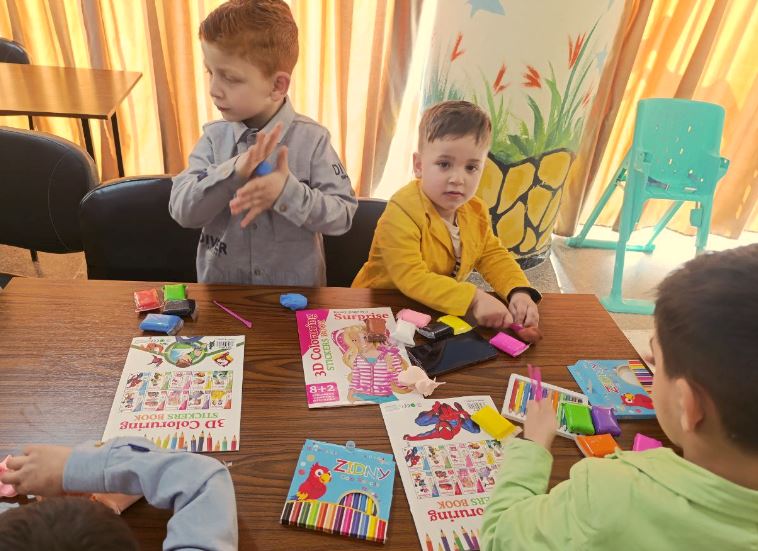
Programs address social, economic needs of youth. NEW ROCHELLE, NY (Jan. 1, 2026) Salesian Missions, the U.S. development arm of the Salesians of Don Bosco, joins Catholic organizations around the globe in honoring the Catholic Wo
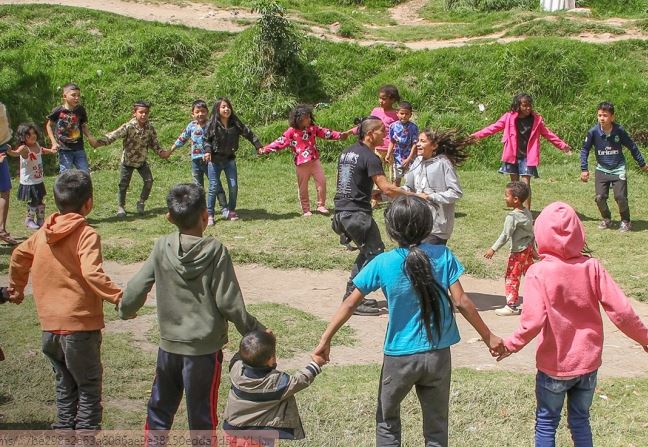
Salesians also develop programs to give youth opportunities in home countries. NEW ROCHELLE, NY (Dec. 18, 2025) Salesian Missions, the U.S. development arm of the Salesians of Don Bosco, joins humanitarian organizations and the in
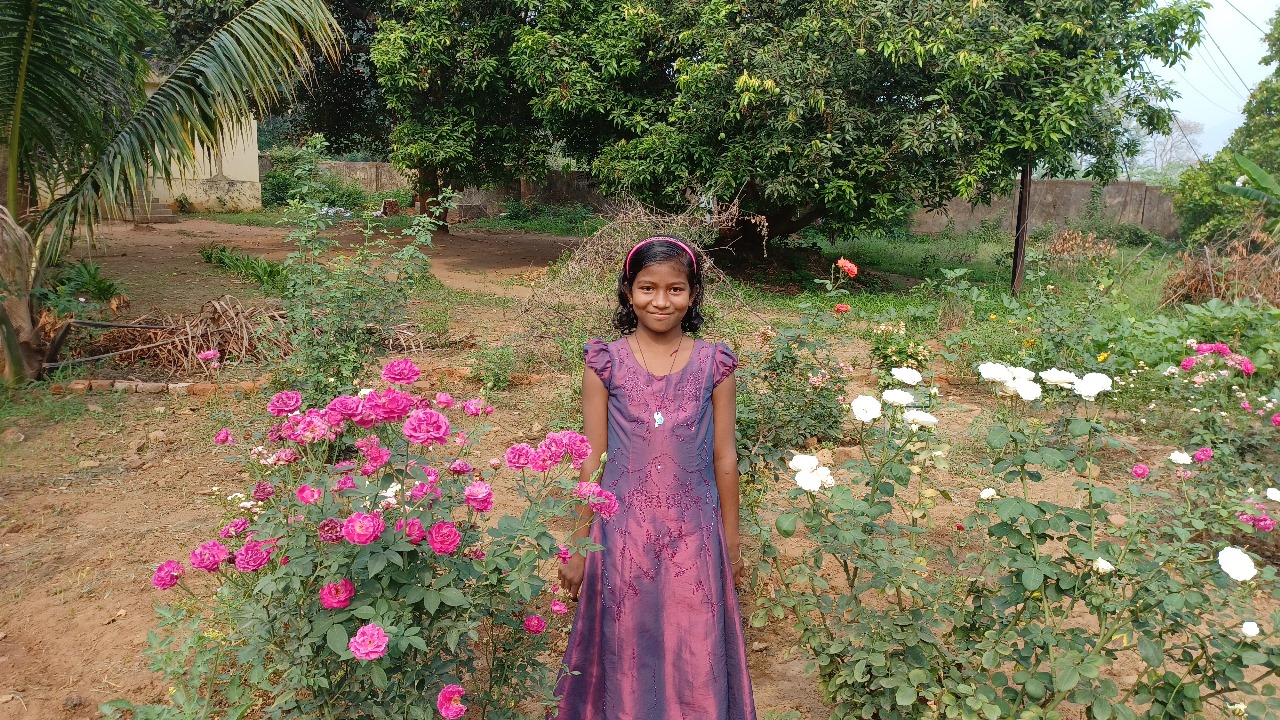
Salesian programs across India focus on education. NEW ROCHELLE, NY (Dec. 15, 2025) Don Bosco Nava Nirman, located in Muniguda, India, provided scholarships for 32 girls thanks to donor funding from Salesian Missions, the U.S. dev
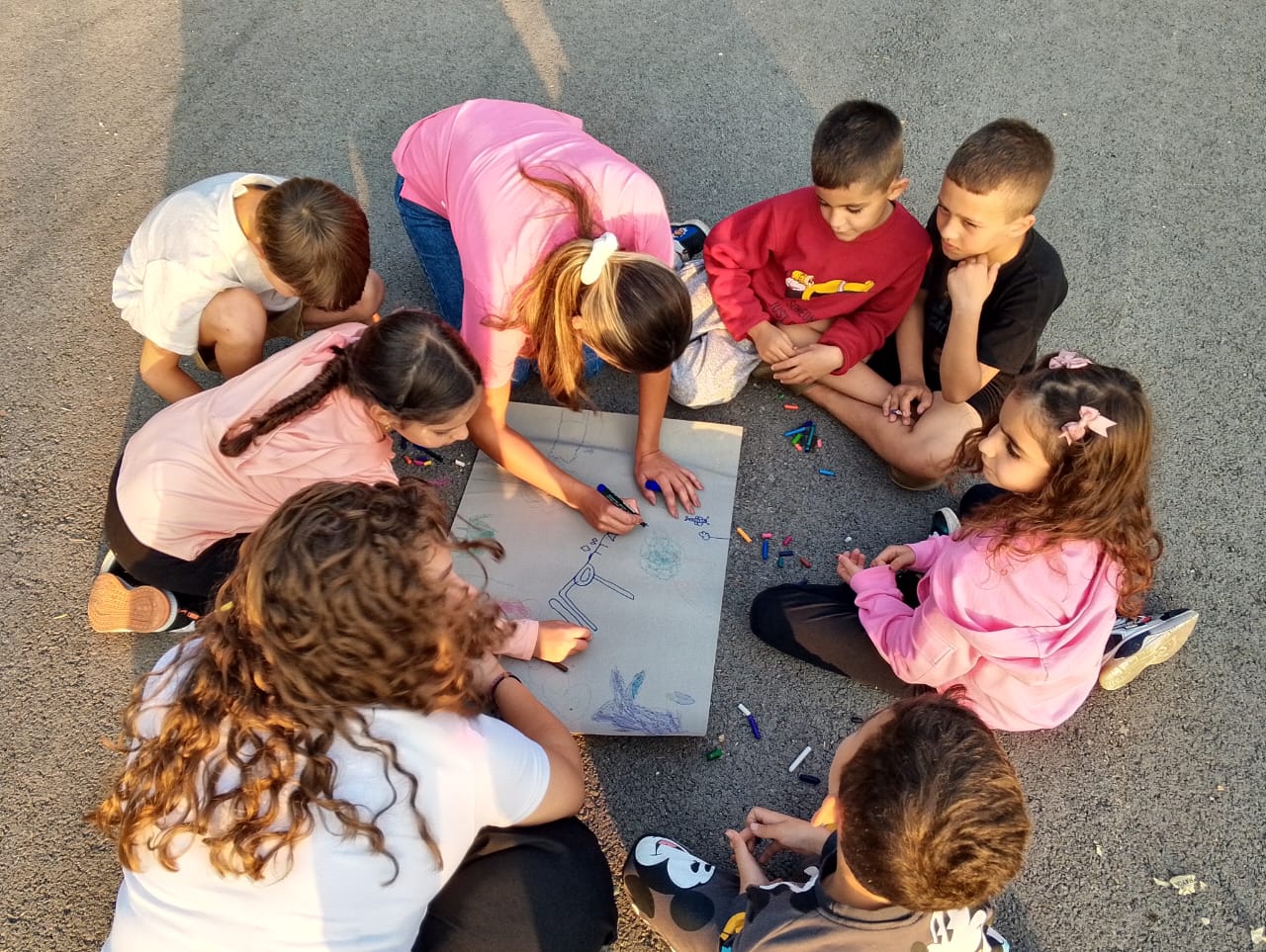
Salesians around the globe work to ensure all youth know their rights. NEW ROCHELLE, NY (Dec. 10, 2025) Salesian Missions, the U.S. development arm of the Salesians of Don Bosco, joins humanitarian organizations and the internatio
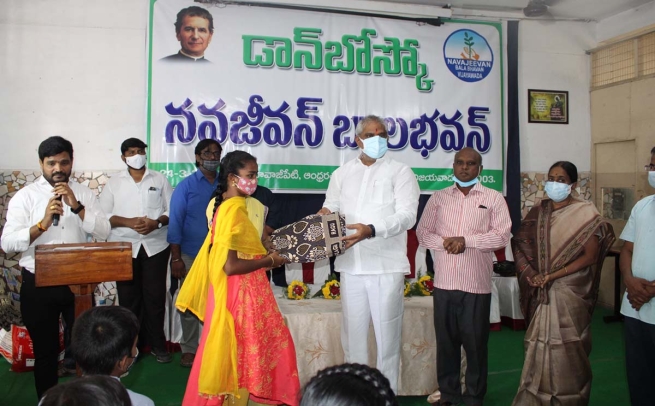
Program in India recently recognized for work. NEW ROCHELLE, NY (Dec. 1, 2025) Salesian Missions, the U.S. development arm of the Salesians of Don Bosco, joins humanitarian organizations and countries around the globe in honoring
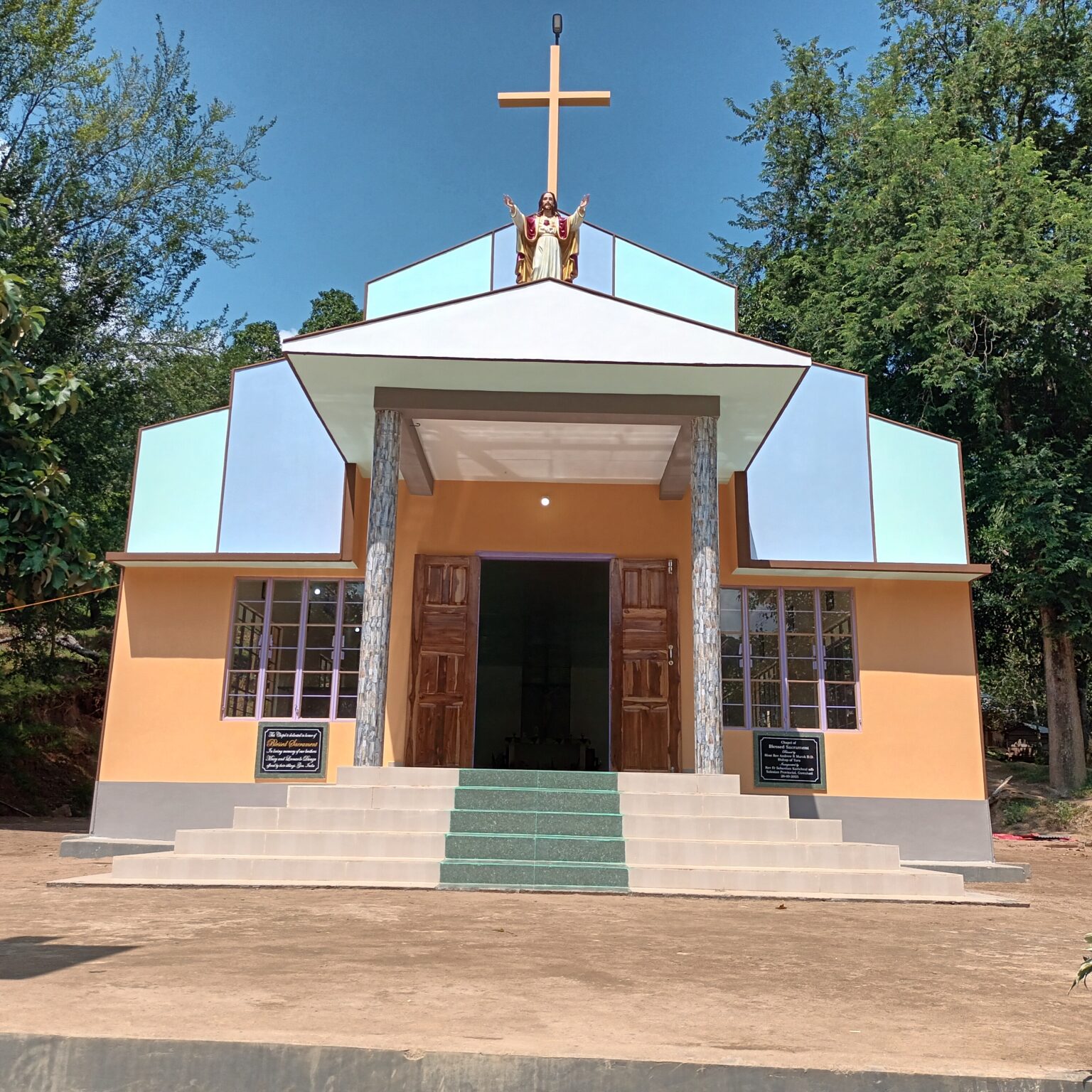
Chapel to serve as gathering place for church and prayer. NEW ROCHELLE, NY (Nov. 24, 2025) Salesian missionaries were able to construct the new Chapel of the Blessed Sacrament in Pathangre Village, tribal village in Madhya Pradesh
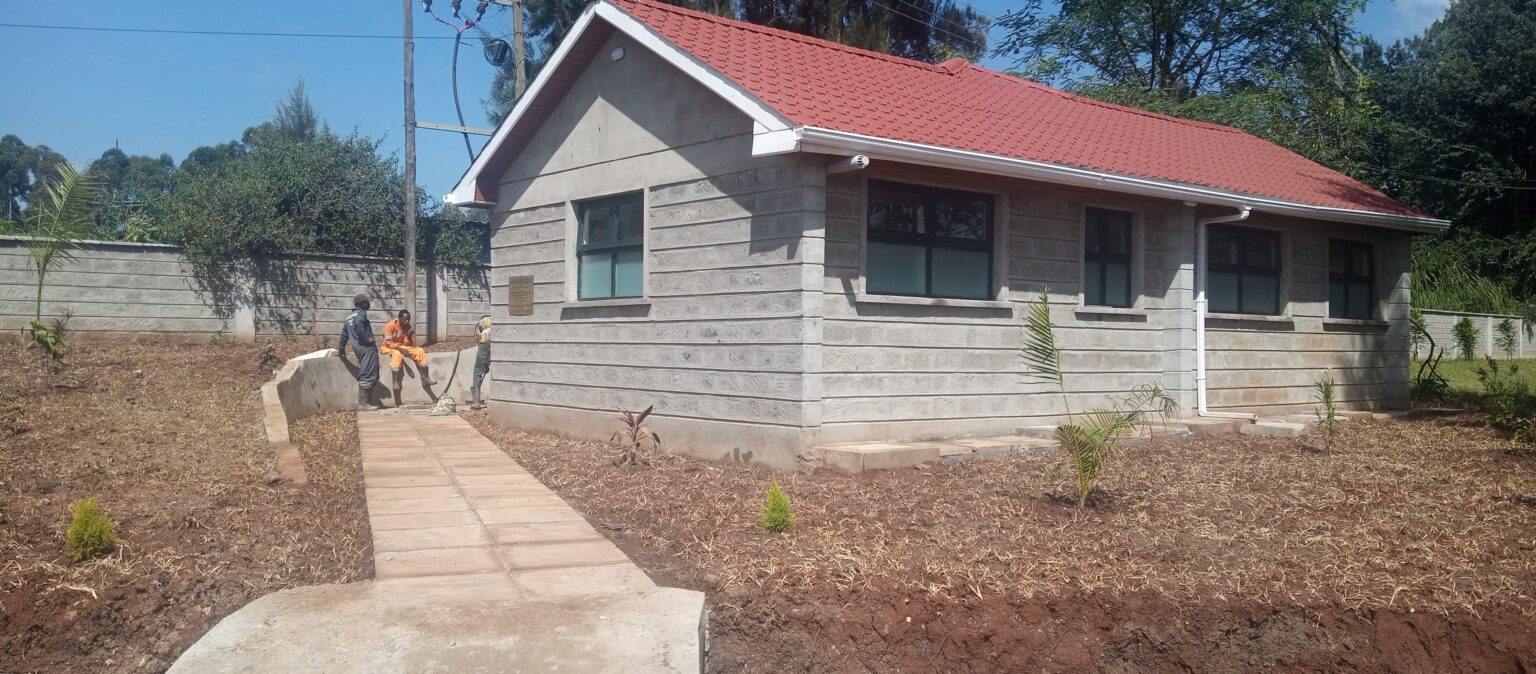
‘Clean Water Initiative’ includes ensuring bathroom facilities for students. NEW ROCHELLE, NY (Nov.19, 2025) Salesian Missions, the U.S. development arm of the Salesians of Don Bosco, joins humanitarian organizations and the i
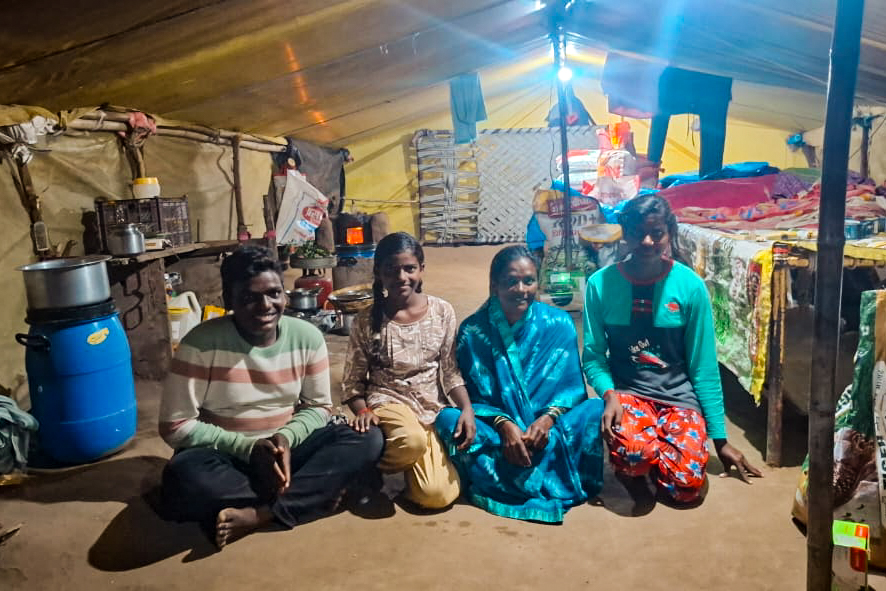
Families now are no longer dependent on unsafe and illegal power connections. NEW ROCHELLE, NY (Nov. 10, 2025) Bosco Gramin Vikas Kendra, located in Maharashtra, India, implemented the “Solar Home Lighting” initiative to addre
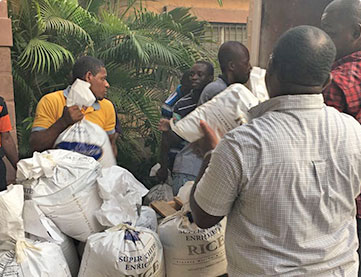
Salesian Missions includes agriculture in its vocational training programs – to ensure that youth of Rwanda learn better agricultural practices as well as keep the school self-sustaining in the face of the country’s food shortages.
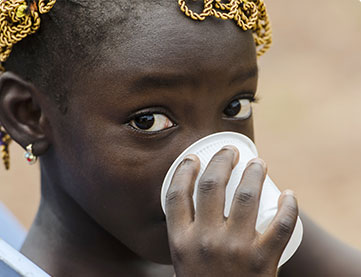
Salesian Missions includes agriculture in its vocational training programs – to ensure that youth of Rwanda learn better agricultural practices as well as keep the school self-sustaining in the face of the country’s food shortages.
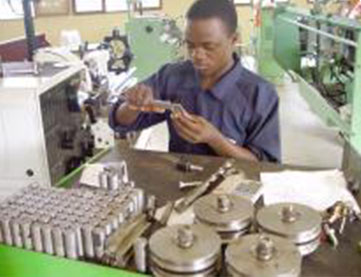
Salesian Missions includes agriculture in its vocational training programs – to ensure that youth of Rwanda learn better agricultural practices as well as keep the school self-sustaining in the face of the country’s food shortages.